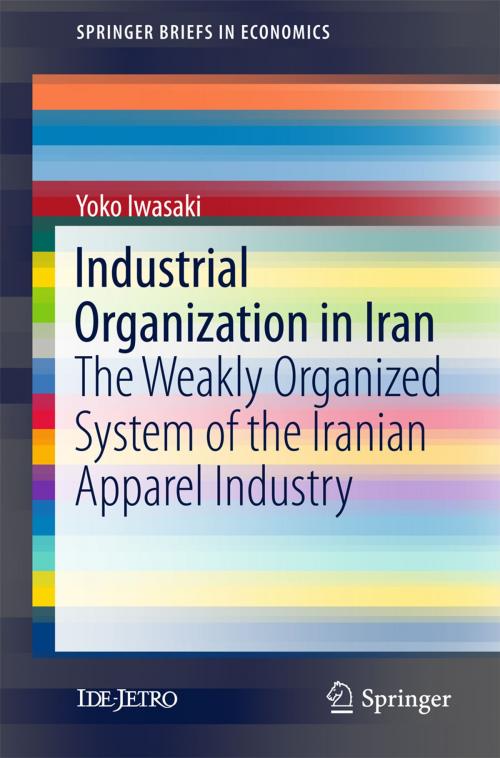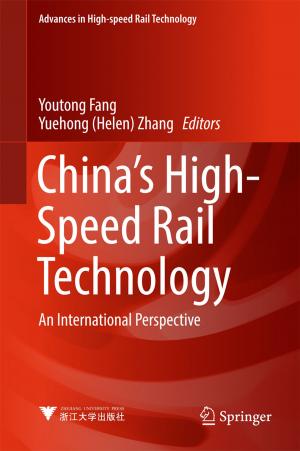Industrial Organization in Iran
The Weakly Organized System of the Iranian Apparel Industry
Business & Finance, Management & Leadership, Industrial Management, Career Planning & Job Hunting, Small Business| Author: | Yoko Iwasaki | ISBN: | 9789811045790 |
| Publisher: | Springer Singapore | Publication: | July 11, 2017 |
| Imprint: | Springer | Language: | English |
| Author: | Yoko Iwasaki |
| ISBN: | 9789811045790 |
| Publisher: | Springer Singapore |
| Publication: | July 11, 2017 |
| Imprint: | Springer |
| Language: | English |
This book focuses on Iran to explore the question of how the nature of industrial organizations and the whole system they constitute can exert a great influence on an industry’s competitiveness and resilience. The author examines what happens if firms and companies participating in the manufacturing and distribution process of a certain product are not organized to a high degree and operate independently. The book begins with an inquiry into the historical environment of Iran’s apparel industry, which has never been stable. It then reveals the specific practices that enable firms to maintain their independent business, and argues that the elastic state of the production and distribution system has worked for the survival of self-reliant member firms.
The typical Iranian apparel firm persists in maintaining independent operations regardless of its size, a practice that is inimical to the development of long-lasting business relations with other firms as well as to vertical integration between firms, in all stages from production to distribution. A distinguishing feature of Iran’s apparel industry is that the member firms are barely organized compared with their counterparts in advanced industrialized countries. Despite such a weakly organized system, generally small-scale but self-reliant Iranian firms courageously persist in the face of the market’s difficulties.
Superficially, it appears that Iran’s apparel market is being filled with Chinese goods, but the reality is somewhat different. Apparel firms that are currently doing business with China but are ready to terminate it at any time are taking advantage of newly emerging opportunities to ensure the survival of their own businesses. Reopening those businesses for domestic operations remains an ever-present possibility for them.
This book focuses on Iran to explore the question of how the nature of industrial organizations and the whole system they constitute can exert a great influence on an industry’s competitiveness and resilience. The author examines what happens if firms and companies participating in the manufacturing and distribution process of a certain product are not organized to a high degree and operate independently. The book begins with an inquiry into the historical environment of Iran’s apparel industry, which has never been stable. It then reveals the specific practices that enable firms to maintain their independent business, and argues that the elastic state of the production and distribution system has worked for the survival of self-reliant member firms.
The typical Iranian apparel firm persists in maintaining independent operations regardless of its size, a practice that is inimical to the development of long-lasting business relations with other firms as well as to vertical integration between firms, in all stages from production to distribution. A distinguishing feature of Iran’s apparel industry is that the member firms are barely organized compared with their counterparts in advanced industrialized countries. Despite such a weakly organized system, generally small-scale but self-reliant Iranian firms courageously persist in the face of the market’s difficulties.
Superficially, it appears that Iran’s apparel market is being filled with Chinese goods, but the reality is somewhat different. Apparel firms that are currently doing business with China but are ready to terminate it at any time are taking advantage of newly emerging opportunities to ensure the survival of their own businesses. Reopening those businesses for domestic operations remains an ever-present possibility for them.















